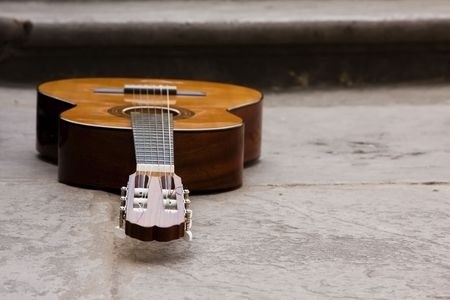
I’m often asked “how long” it takes to learn to play jazz. The reality is, you can start playing jazz today if you want to, but to “learn” it will take your whole life. Jazz is a process not a product. I’m still learning and don’t plan to stop anytime soon.
When first learning to play jazz guitar (or even when you’ve been playing for quite awhile) it can sometimes seem overwhelming. There’s always so much that we don’t know and need to learn, and especially in the beginning and intermediate stages, it often feels out of reach.
Remember that nobody (not even the greatest player) knows everything! Each person can only know what they know and are good at. And most of us continue to try to learn and grow as players (and as human beings!). If we knew it all, it would actually be quite boring. There would be no reason to keep practicing and improving.
But a lot of people feel frustration about practicing; What to practice? How to practice? How much? etc.. There’s so much to learn, that it’s natural to be a bit overwhelmed, so here are some tips that I hope you’ll find helpful
Five Areas of Practice
I think it’s good to break your practice into 5 main areas; Reading, Technique, Theory, Ear-Training and Repertoire. At least half of your total practice time should be spent on repertoire, so if you have 2 hours to practice, it might look something like this:
- 15m Reading – Anything really, just read some music to keep the skill active, classical, jazz, transcriptions, whatever you have handy. It’s important that the music you pick be within your reading level, so that you don’t get “stuck.”
- 15m Technique – Scales, arpeggios, patterns, sometimes I’ll just pick a single key each day and work on that, or sometimes I’d pick a different position each day and work on it till it’s comfortable.
- 15m Theory – Spelling scales, chords, analyzing and memorizing chord progressions, etc.
- 15m Ear-Training – Singing with solfege, note names, numbers, online exercises like the ones on classic.musictheory.net, etc. Transcribing phrases and/or solos from records. Playing a melody in all 12 keys by ear. Training your ear is one of the most important thing you can do to improve as a musician.
- 60m Repertoire – This is where it should all come together! Practice the melody, chord changes, chord melody (if it’s that kind of tune), practice arpeggios and scales for each chord, transcribe licks, phrases or whole solos of great players and learn them, etc., and then don’t forget to spend some time just PLAYING the tune!
You don’t have to stay strictly with this, and because Repertoire is where everything else converges, if you’re faced with very little time, it may be best to concentrate your efforts there (it’s all too easy to get caught up in practicng scales and technique for hours only to realize you’re tired, have no time left, and haven’t played a single piece of actual music).
Keep a Journal
Keep a practice journal and write in it daily. Write down your thoughts about what you’d like to be able to play, and what the necessary steps are to reach that level. Write about what you’re practicing now and what’s working (or not working). Write about your goals, great music you’ve heard that inspires you, etc. Read it from time to time to see if you’re being honest with yourself.
Make Lists
Make a list of the tunes and technical things you are working on (or want to be working on) and keep it posted near where you practice. Every day, look at that list and ask yourself what you’re actually doing from the list, try to master those things, and then add ideas.
The Natural Cycle of Things
Another piece of advice I give all my students is to:
LISTEN -> PRACTICE -> PLAY WITH OTHER PEOPLE -> and then REPEAT
It’s really important to play with other people, because that’s when you know if your methods are working. Don’t get discouraged if everything isn’t always perfect, consider it a lesson! If you showed up to jam but you didn’t know a tune that was called, put it on your list! Find recordings, lead sheets, etc. Study the song and learn it. Use it as a chance to improve!
The Most Important Thing
Ted Dunbar once told me that to the most important element to being a great jazz player wasn’t raw natural ability, but rather a “burning desire” to do it. Because there are some with the ability but not the drive who while having the potential for greatness might never achieve it. But a person with enough ability to get the job done, and a burning desire to make it happen, will ultimately succeed.
So the best advice I’d like to give you is that if you are in a practice slump (and it really does happen to all of us); DON’T GIVE UP!!!!!
